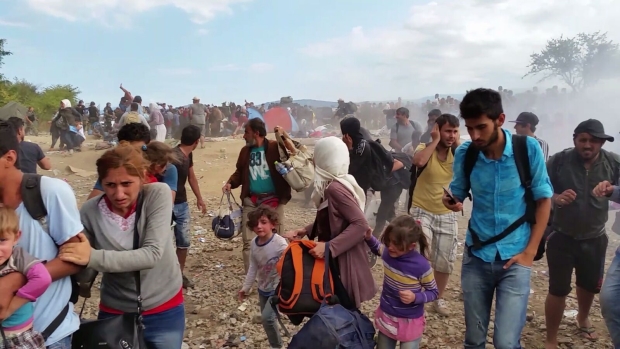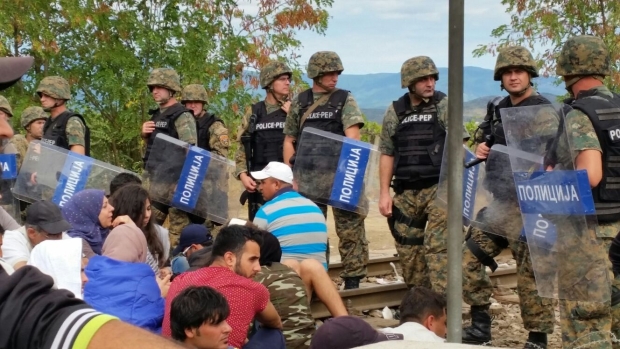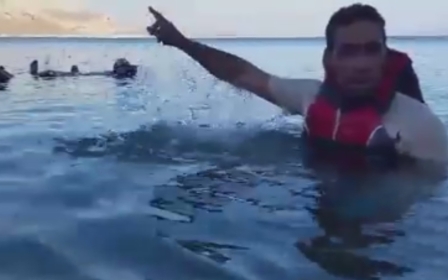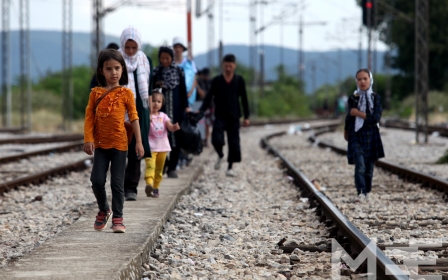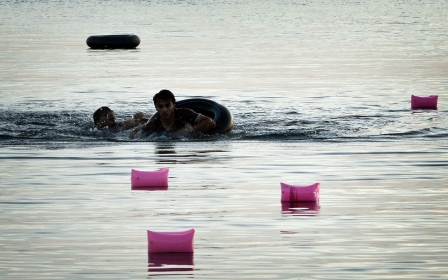One man's journey to Europe: Syria’s Givara makes it to Macedonia
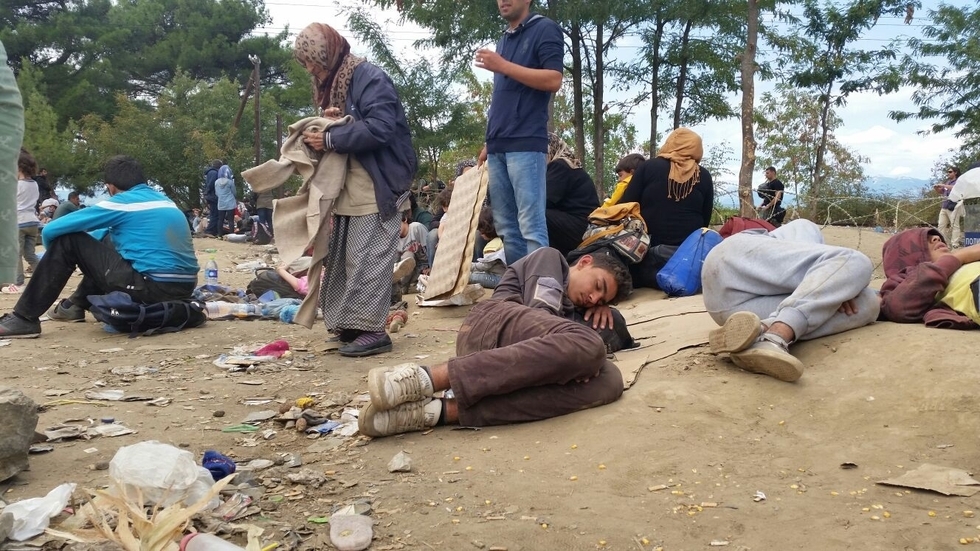
Givara al-Ali, the young Syrian director and actor who made headlines last week for making a satirical video purporting to show refugees swimming through dead bodies in order to reach Europe's shores, has made it across the Greek border into Macedonia amidst one of the biggest crises to hit the EU since the mass influx of refugees and migrants began earlier this year.
According to Givara, who has agreed to document his journey from Greece into northern Europe for MEE, the conditions on both sides of the border where thousands of mainly Syrian refugees have been stuck for days at a time are totally miserable.
“The spirits of most people, especially the ones who have children, is bad,” he told MEE.
"People on either side of the border sleep out in the open or in tents. On the Macedonian side, there’s around 4,000 people in total. Syrians make up 1,500. Iraqis make up another 1,500. The rest are a mixture of people mainly from Pakistan and Sudan."
Givara, who was previously on a Greek island for two weeks, said that he travelled up north and made it across the border seven times.
"The border guards caught me each time," he said. "Every time I would make it two kilometres inside, the border guards would chase me, catch me and beat me up. Then they would throw me back into a valley on the Greek side."
“Maybe they beat me up because I resisted,” he added. “But in the end me and my friend pushed hard against the border guards and [we] got through.”
The situation on the Greek-Macedonian border exploded last Friday after Macedonian authorities closed the border, and border police began firing tear gas and stun grenades towards the mass of people struggling to get into the country. Videos and images apparently showing the refugees - men, women and children alike - being beaten up have since also emerged.
According to the Ministry of Interior, around 42,000 migrants and refugees entered the small Balkan state in the past two months. Most of the refugees are using Macedonia to get through to the northern European countries.
The recent border violence prompted Amnesty International to rebuke the Macedonian government for not dealing with the influx of refugees appropriately.
“The Macedonian authorities are responding as if they were dealing with rioters rather than refugees who have fled conflict and persecution,” said Gauri van Gulik, Amnesty International’s Europe Deputy Director.
“All countries have a duty to protect those fleeing conflict and persecution, and Macedonia is no exception. When the system cannot cope, you improve the system - you don’t just stop people from coming in.”
Givara said that border authorities on Saturday were letting people pass through in very limited numbers.
"People are allowed to cross the border drop by drop - around 20 people every hour," he said.
“They [border guards] act like they’re giving priority to families, but once the clashes start no one is spared,” he said. “I’ve seen women and girls getting beaten up. There’s quite a few injuries here.”
Givara is now waiting for an official stamp by the authorities before he continues on his next leg of his journey, where he hopes his final destination will be either Holland or the UK. He said that once he gets the stamp he will not wait for a train but will take a taxi directly to the Serbian border.
"I have enough money to book a hotel to sleep in, but I don't stay in my room. I like to spend most of my time with the other refugees who sleep in tents or out in the open. I bought 15 tents and gave them to families. My heart aches whenever I see a child sleeping on the ground hugging himself from the cold.”
He brushes off the families’ gratitude and says he feels like this is his obligation to them.
Humanitarian assistance exists in the form of packages sent by Doctors Beyond Borders and from the Greek authorities. Food trucks have sprouted near the border and some people buy what they can from there. But over the weekend, heavy rains resulted in many people getting sick, and Givara said there were medical shortages.
As for his next satirical video depicting life for Syrian refugees journeying across Europe, Givara says he is still gathering material.
“I have quite a lot of footage, but nothing really concrete,” he said, reflecting on the sober events and clashes at the border. “Not yet anyway.”
Middle East Eye will be following Givara's story as he continues his real-life journey north through Europe over the coming days in hopes of seeking asylum.
New MEE newsletter: Jerusalem Dispatch
Sign up to get the latest insights and analysis on Israel-Palestine, alongside Turkey Unpacked and other MEE newsletters
Middle East Eye delivers independent and unrivalled coverage and analysis of the Middle East, North Africa and beyond. To learn more about republishing this content and the associated fees, please fill out this form. More about MEE can be found here.


